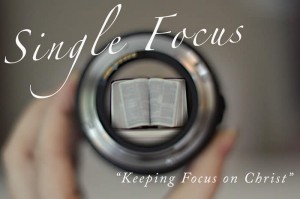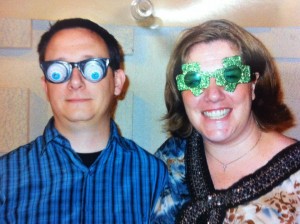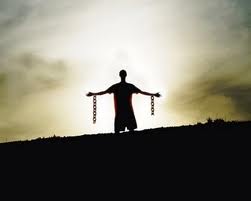Three weeks. That’s how long it took my daughter to clean her room.
At first, it was just a task she had to complete. Then it became a very clear directive with a time frame. Sometimes life throws curve balls into our schedules, so the time frame behind the directive grew fuzzy. Then the threats began: you’ll be grounded; you’ll lose you computer; you’ll lose your phone; you’ll lose your toys. Every possible technique that would have worked on me was applied in my daughter’s situation. Yet, the room remained filthy. My husband and I stopped going in to kiss her goodnight because we literally couldn’t open the door wide enough to get in and we certainly didn’t want to take our chances wading through knee-high stuff on the floor. She had to come to the door for her end-of-day time with mom and dad.
The demands for cleanliness continued. She begged for delays to complete projects for school or to have friends over before church on Wednesday night. She even promised me once that her room was “nearly clean” as a way to have me relent so a friend could come over. I declined that one, and was grateful — there was stuff all over the floor! Her definition of clean and my definition of clean are pretty much polar opposites.
Finally, this weekend she was given the ultimatum — it would be done or mom would clean it. When I clean the kids’ rooms — always due to their lack of caring and acting — they don’t get a say in the cleanup process. I bring in garbage bags and bins to collect what should go to Goodwill. They are not allowed in the room when I’m cleaning it, and they have no say on what goes or stays. It’s not very fun for me or for them. So Zoe knew she’d better take care of it. She worked all day Saturday (we’re talking at least eight hours). I still couldn’t see her floor or her bed, and I didn’t dare open the closet. Sunday following church, she was told to have it done by 4 p.m. I went outside to weed a garden and let her be. My husband caught her just sitting there. I had to take away her phone twice. Four o’clock came and she was making progress, so we let her keep at it. At 6:30 p.m., she vacuumed the floor and had me come check it.
As always, there were some small things, such as the trash behind her door or tucked under her dresser. Then, I opened the closet. Everything that had been on the floor was now in a pile in her closet. I quickly left the room and told her to get to work. But, as I tried not to get mad, I considered the situation and how many times we had told her to take care of it. I remembered the promised consequences for not completing this task. So I had my husband take her out of the house, develop a clean room contract with her, and not bring her home until I called him.
For the next hour or so, I cleaned that room. The list of items I found was astounding: my missing silverware; the brown sugar container (top off, with spoon buried inside) deep in her closet; food stuffed behind things and in things; dirty socks, pants, tops, and skirts mixed into the drawers and tubs she has just “cleaned”; her overdue library books; many pairs of clean, folded socks she never can find; and lots of junk. I removed her doll collection and all the accessories (the punishment is she has to earn them back — they’re currently in our off-site storage unit), got rid of trash, piled up the laundry basket, moved her furniture and cleaned up the newly found trash, and vacuumed the room all within that short amount of time. When she and Ian came home, I added more to the contract based on what I’d experienced in her room, then we all signed it. We will strictly enforce it. Then I gently tucked her into bed, this time able to walk to her bed, and let her know I loved her.
I was so frustrated by this experience. I was tired of the swirling emotion spent by several of us on trying to get the room clean over this period of time. I was disgusted by her behavior (I can’t fathom how a person can do that!). And then I realized that someone else shares these feelings with me.
The Bible recounts the story of the Jews from the creation of the world. Many folks I know wonder why we still read the old testament, which contains “the law” portion of the Bible, since Jesus came to take the penalty for our sin. But the fascinating story of the old testament is about God’s love for his people. They are given rules to provide structure. Consequences are laid out in advance for breaking the law. Yet, the Jewish people again and again test God’s patience by straying and doing their own thing. At times, God takes drastic measures to get them back on track. He destroys the earth with a flood. He punishes his people to 40 years of wandering in a desert. He opens holes in the ground to swallow families and their possessions. He allows kingdoms to be destroyed and his people to be taken captive.
Yet, over and over again, God displays his patience and love for his people, gives them redemption, and restores the relationship. Read the story of Hosea. I’m in love with this story, as heartbreaking as it is. I’m especially drawn to this quote:
“I will heal their waywardness and love them freely, for my anger has turned away from them.” Hosea 14:4
Being a parent helps me understand God more. I understand (in my limited human way) his great love despite all the icky things that get between us and him. When my daughter and I battle over her room, there is conflict until the room is resolved. How we get to resolution varies. I don’t love her more or less because of the conflict or the consequences that have to be applied. It doesn’t mean I like how the situation unfolds. Rather, like God, I love her and seek wholeness in the relationship.
However, the lesson in this situation is not just for my daughter. I need to learn patience beyond patience — to keep dishing it out over and over again. Do I want my daughter to remember her epic battles with mom over her room, or do I want her to remember how much I love her? The answer is clear. I am so grateful for a Savior who has been there and done that, so I can have an example to guide me over and over again as I stumble through parenthood. Phew! One day at a time!



















